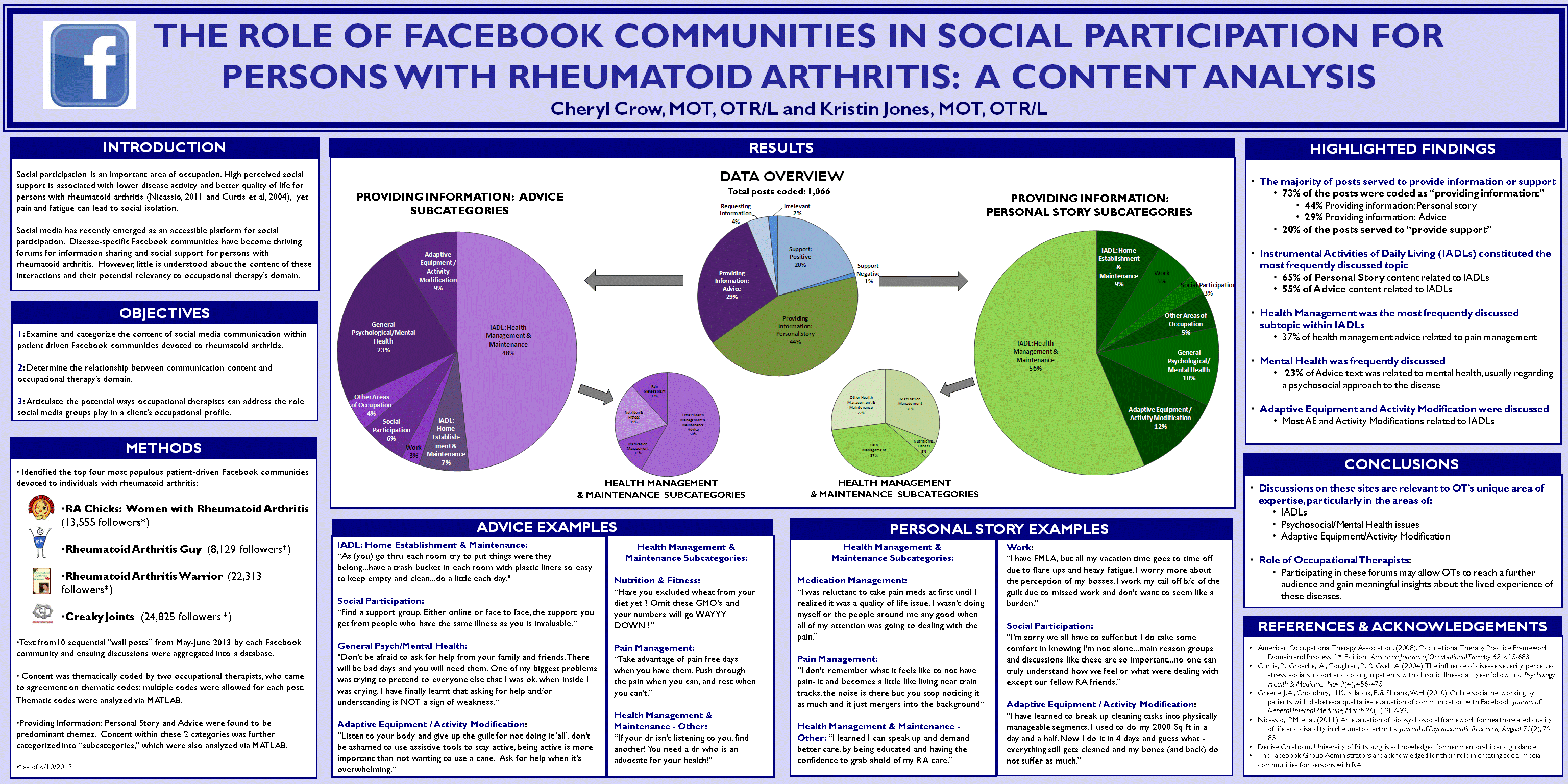The Role of Facebook Communities in Social Participation for Persons with Rheumatoid Arthritis: A Content Analysis
Research overview & summary
My colleague Kristin Jones, OTR/L and I conducted the following qualitative research. It details the most frequent topics of conversation for persons with rheumatoid arthritis who engage in disease-specific Facebook groups. My experiences as a patient participating in these groups inspired this research.
In order to objectively assess the communication content of these social media groups, Ms. Jones and I performed the data analysis seen below in the data overview section. The poster is pasted below and can also be found at SlideShare.
Research poster

Significant Findings
1. The majority of Facebook group posts served to provide information or support.
Information was provided most often in the form of advice or personal stories.
2. “Instrumental Activities of Daily Living” (also known as IADLs) were the most frequently discussed topic
IADLs are activities that support life in the home and community that are more complicated than basic activities of daily living. IADLs include health management and maintenance, care of children and pets, financial management, household management, and more as described in the Occupational Therapy Practice Framework.
3. Health Management & Maintenance was the most frequently discussed subcategory of ADLs.
Patients with rheumatoid arthritis primarily discuss strategies for managing their conditions, which is consistent with other research on disease-specific social media groups such as groups devoted to diabetes. For more details, see the references on the bottom right of the poster.
4. Mental health and psychosocial topics were frequently discussed, particularly in the advice category.
Patients often provided psychological support and validation for each other in their posts. This has particular significance for this condition as it is often hidden or invisible, and frequently misunderstood.
5. Overall conclusion: patients frequently discuss topics relevant to occupational therapy on rheumatoid arthritis social media groups.
This was particularly true for IADLs, thus showing a need for IADLs to be addressed more frequently in the non pharmacological treatment of rheumatoid arthritis (which often includes occupational therapy).
Presentations & Thanks
We presented the poster at the American OT Association and the Washington OT Association‘s annual conferences. We also presented a version of this research at the World Federation of Occupational Therapists Conference in 2014.
We would like to thank Dr. Denise Chisholm from the University of Pittsburgh Occcupational Therapy Department for her assistance with this research project. She generously volunteered her time as Cheryl’s mentor during the Emerging Leaders Development Program from 2013-2014.